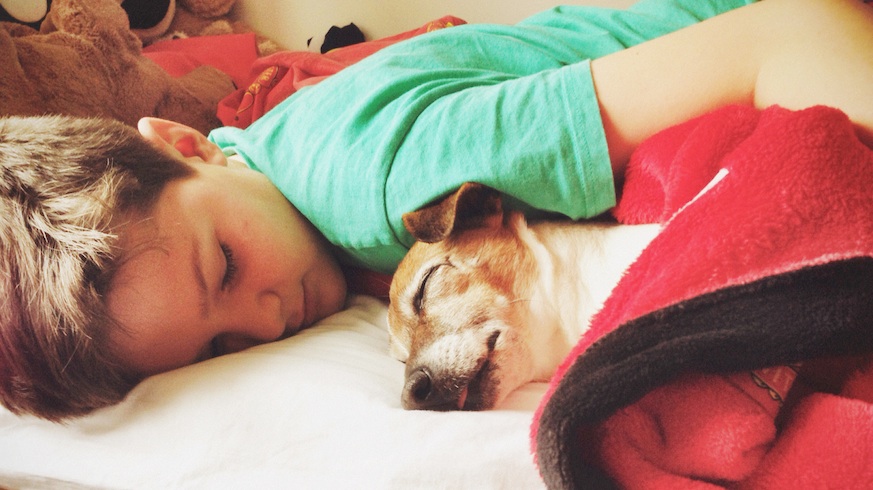Dog owners get it — letting your dog sleep in your bed with you is one of the joys of cohabiting with a scruffy, cuddly creature. But (jealous) haters will make the argument that it’s just not proper, or that it’s unhygienic, or it can disrupt your sleep. As for it being unhealthy — experts say that’s only true if you have allergies; and studies have shown that exposure to your dogs’ microbiome is actually good for your immune system.
Now, new research puts to rest the notion that Fido could be getting in the way of stacking Zzz’s.
The NYTimes reports on a recent study from the Mayo Clinic, which analyzed the sleep efficiency of 40 dog-and-human duos who regularly sleep in the bedroom or bed together. Researchers used wearables to track the sleep quality of the dogs and their owners over seven nights — the humans were given a device called an AntiWatch 2, which monitors movement and quality of sleep, while the dogs wore a FitBark, which similarly tracks levels of rest and motion. The humans also kept a sleep diary. Of note: The people included in the study did not suffer from sleep disorders.
After seven days of testing, the results showed that both man and his best friend slept soundly. When the dog was in the bed, humans had an average sleep efficiency (percentage of time asleep during the night) of 81 percent, while the pups scored a hair higher, at 85 percent. (80 percent and above is considered normal.)
“This goes against the lore that you should have the dog sleep elsewhere,” lead study author Dr. Lois E. Krahn, a psychiatrist and sleep medicine specialist at the Mayo Clinic’s Center for Sleep Medicine, told the Times.
OK, so the people did sleep a tad more restfully — 83 percent sleep efficiency — when the pupper was in their room but not directly on their bed. (A small price to pay for that nightly dose of oxytocin!) And, unsurprising to anyone who’s ever observed the deep snooze of a canine and felt envious, the dogs slept just as well no matter where they curled up in the room.
Krahn noted that she plans to conduct a larger study of co-sleeping dogs and their owners, and to test whether the number of humans in the bed with a dog makes any difference. She’d also like to conduct similar research on the effect of cats in the bed.
















